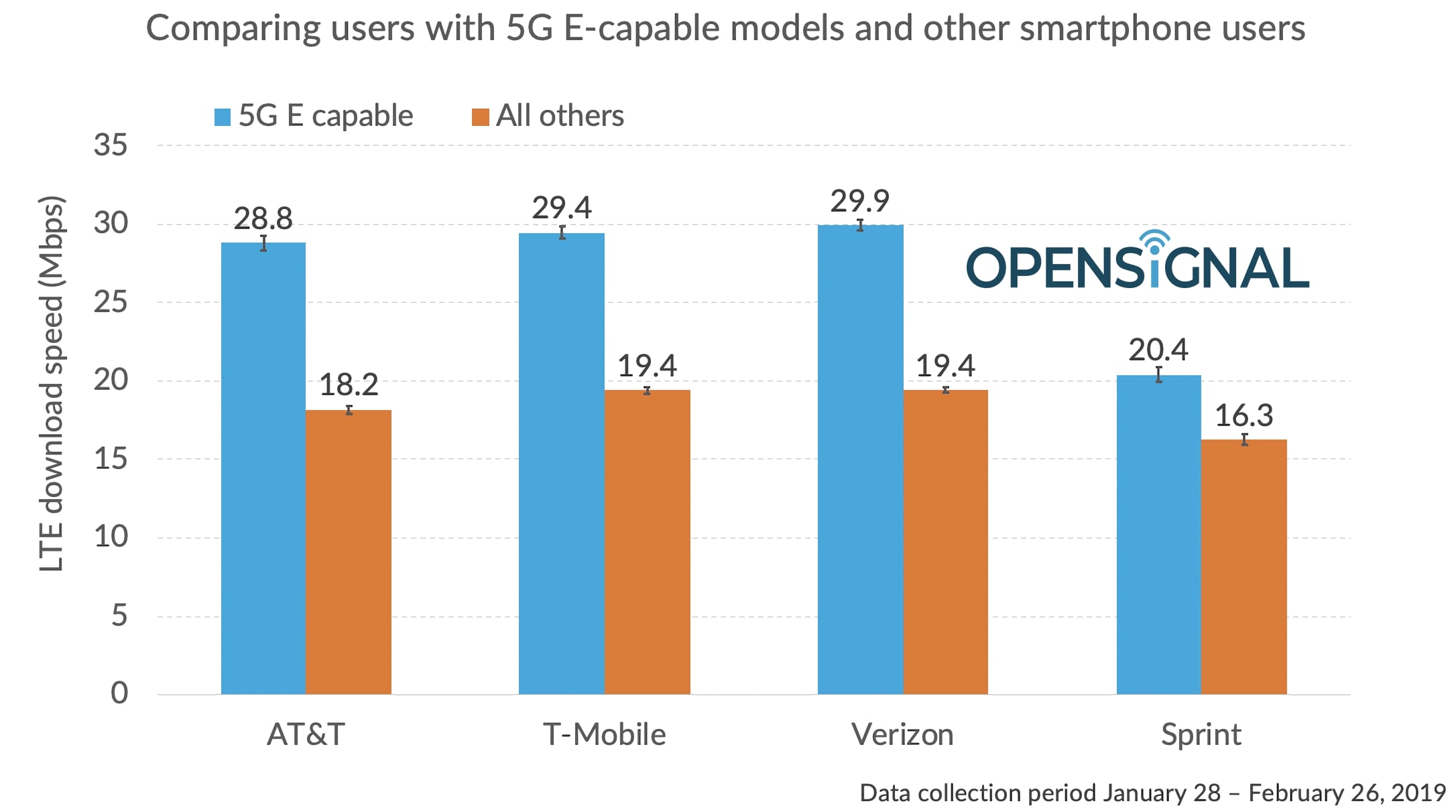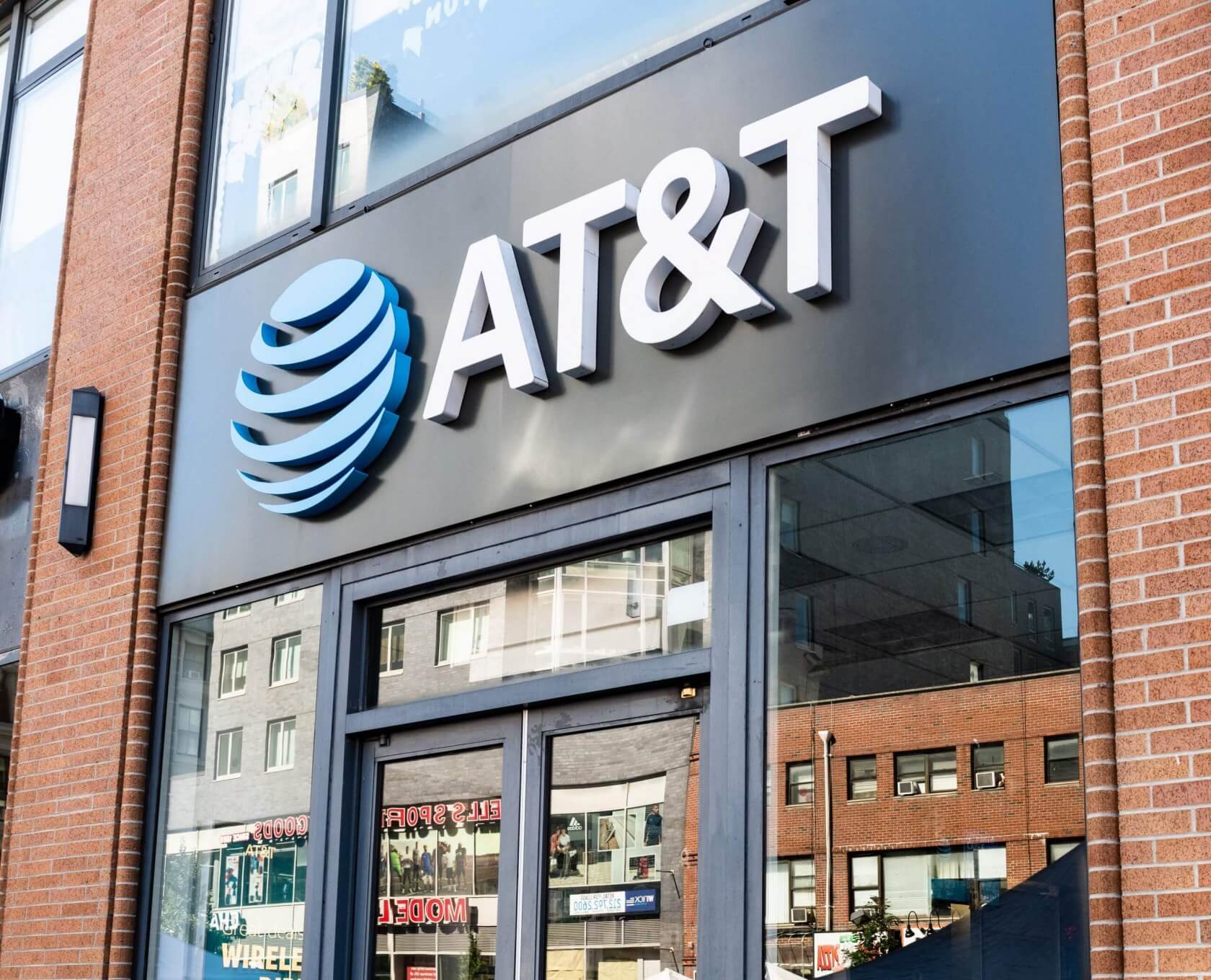A hot potato: A new study conducted by OpenSignal has found that AT&T's 5G E network is 2% and 4% slower than T-Mobile and Verizon's Gigabit LTE networks, respectively. While it was already clear that 5G E didn't introduce new technologies, the study adds fuel to the fire that has caused an outcry in the public and made Sprint sue AT&T for misleading marketing.
5G E is what AT&T calls Gigabit LTE, which is an array of technologies that work together to make 4G networks faster. LAA lets signals jump between bands to avoid traffic, 256-bit QAM boosts a signal's efficiency by 30%, and 4x4 MIMO doubles the number of antennas connecting a phone to a network. Combined, they can more than double a connection's speed.
Throughout February, OpenSignal collected information from 1,057,522 public network speed tests. On Gigabit LTE/5G E capable devices (shaded blue on the graph below), AT&T's network performed very much the same as their competitor's, excluding poor Sprint. This confirms what we all believe: 5G E is nothing special.

However, AT&T has managed to find something in the fine print. OpenSignal used speed data from Gigabit LTE devices whether they were connected to a Gigabit LTE (or 5G E) network or not, for the very practical reason of there's no way to know. But because all the networks were subject to the same standards, OpenSignal believes that this doesn't matter.
"OpenSignal's note reveals their methodology is flawed," AT&T said to Ars Technica. "Speed-test data purporting to show the 'real-world experience of 5G Evolution' without verifying the capable devices were tested in a 5G Evolution coverage area as shown by the indicator does not accurately represent the 5G Evolution user experience."
If 5G E is somehow marginally faster than Gigabit LTE, then that would require T-Mobile and Verizon's networks to have much wider Gigabit LTE/5G E coverage to balance the graph out. That is absolutely possible, but it also means that you're better off going with AT&T's competitors anyway.
According to Sprint, 54% of customers believe that 5G E is true 5G, and 43% believe that an AT&T 5G E capable smartphone will be able to run on future 5G networks. That's a shockingly large portion of the market being duped by false claims.
